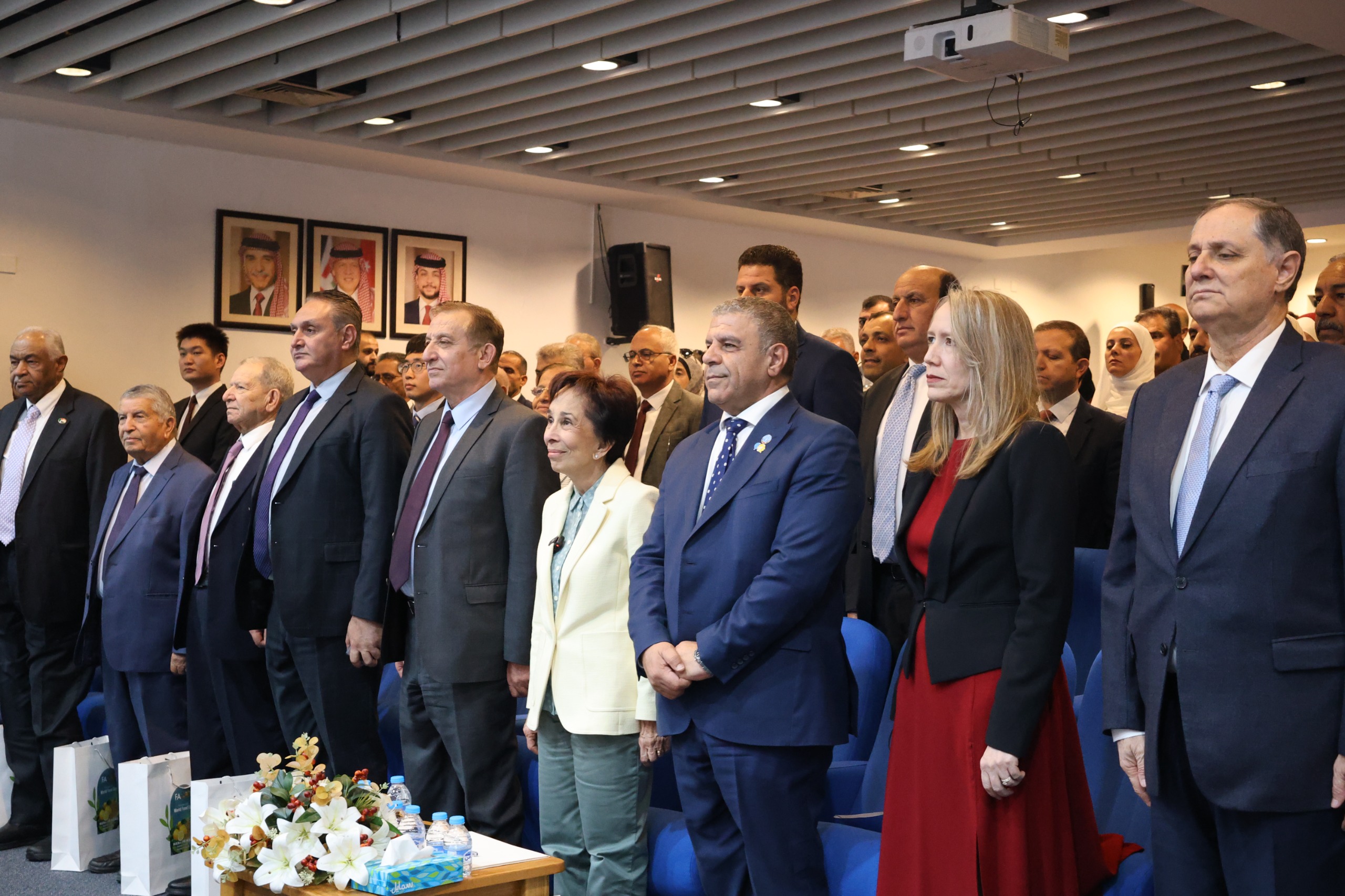FAO JORDAN MARKS 80 YEARS OF ACTION, DRIVING AGRIFOOD SYSTEMS TRANSFORMATION

The Food and Agriculture Organization of the United Nations (FAO) in Jordan joined the national and international community today in commemorating World Food Day and celebrating the 80th Anniversary of FAO’s founding. The official ceremony was held at the Al-Hussain Cultural Center in Amman.
As with every World Food Day event, the commemoration served as an opportunity for acknowledging successful efforts toward achieving the second Sustainable Development Goal “Zero Hunger,” in addition to raising awareness of the critical importance of food security and agriculture.
World Food Day is observed every year on October 16th in remembrance of the day when FAO was founded in 1945; this year marks the 80th Anniversary of FAO. Since its inception, FAO has accompanied government institutions and relevant stakeholders in their effort to implement the Zero Hunger agenda, a collaboration that represents the cornerstone of combating hunger and malnutrition in Jordan.
The event was held under the patronage and presence of Her Royal Highness Princess Basma Bint Talal, who congratulated FAO on the anniversary of its founding, as well as commended its great efforts throughout the world toward ending hunger. The commemoration is also attended by H.E. Dr. Saeb Khreisat, the Minister of Agriculture, alongside numerous governmental and non-governmental stakeholders, demonstrating Jordan's unified commitment to transforming its agrifood systems.
This year's theme is "Hand in Hand for Better Foods and a Better Future," which calls for global collaboration in creating a peaceful, sustainable, prosperous, and food-secure future. By working together, across governments, organizations, sectors, and communities, we can transform agrifood systems to ensure that everyone has access to a healthy diet, living in harmony with the planet.
HRH Princess Basma Bint Talal stated, “FAO has become a leading international institution in promoting food security, establishing sustainable agriculture principles, and supporting the development of rural communities, in addition to its role in addressing major challenges such as climate change and biodiversity loss. Her Highness expressed appreciation for FAO's ongoing partnership with Jordan in addressing local challenges, most notably water scarcity, support for crops, and empowerment of rural communities. She also explained that through its pioneering initiatives, from early warning systems to climate-smart agriculture applications, FAO has been a cornerstone of multilateral action, linking scientific knowledge, policies, and community action.
Her Highness highlighted the unprecedented challenges our agricultural and food systems continue to face, in light of the risks threatening agricultural land, water, and biodiversity, as well as the fragility of supply chains around the world. She emphasized the importance of the UN's role in providing emergency aid and supporting recovery in areas affected by conflict, war, climate shocks, and economic crises. She explained that this role has become more urgent today in the Gaza Strip, which is facing a collapse in the food system, disruption of supply chains, and damage to agricultural land and drinking water and sanitation infrastructure. Her Highness stressed the need for a rapid response, building stronger bridges, and strengthening joint action to address the suffering caused by the war in Gaza and in every part of our world ravaged by conflict today, in order to ensure food security is preserved as a universal right for every human being, not a privilege.
H.E. Dr. Saeb Khreisat, the Minister of Agriculture highlighted that, “The Ministry of Agriculture is fully committed to the goals of World Food Day and to our strategic partnership with FAO. The Royal patronage of this event underscores the national importance placed on achieving food self-reliance and stability. This year's theme perfectly reflects Jordan's strategy: working collaboratively across the Ministry of Youth, civil society, and the private sector to transform our agrifood systems and ensure better diets and opportunities for every Jordanian.”
The UN Resident Coordinator, Ms. Sheri Ritsema-Anderson, “As we mark World Food Day, we celebrate progress and renew our commitment to transforming how societies produce, distribute, and consume food. Supporting food systems transformation remains a top priority for the United Nations in Jordan. Together with the Government, we work to advance sustainable agriculture, strengthen food security, and promote resilient livelihoods under the Economic Modernization Vision.”
FAO Representative in Jordan, Eng. Nabil Assaf stated, “As we celebrate the 80th anniversary of FAO, the World Food Day theme 'Hand in Hand for Better Foods and a Better Future' is our guiding principle. It highlights that transforming agrifood systems requires collective action—from governments setting policy to women beneficiaries showcasing their products today. We must foster innovation, build inclusive value chains, and strengthen partnerships to ensure that healthy, affordable, and sustainably produced food is accessible to all, laying the foundation for a prosperous and peaceful future in Jordan.”
A key feature of the commemoration was the focus on local impact and success. The event highlighted the powerful journey of Malak Al-Qaisi, a 28-year-old entrepreneur from Madaba, as a prime example of an FAO success story. Having received technical training and seed funding through an FAO project, Malak launched her own successful food processing business, "Malak Touch – لمسة ملاك," becoming an inspirational figure for women, youth, and persons with disabilities. Her story showcases the tangible improvements in livelihood and agricultural entrepreneurship resulting from FAO’s inclusive support.
Furthermore, several FAO women beneficiaries from governorates all over Jordan were present and proudly showcased their locally produced food and agricultural products, demonstrating the economic empowerment and increased resilience achieved at the household level across the Kingdom.
Achieving a food-secure and nutritious world for all requires significant investment, innovation, science, technology, and collaboration among governments, the private sector, academic institutions, and civil society. The event served as a powerful reminder of the ongoing commitment of Jordan and its partners to this collective goal.
